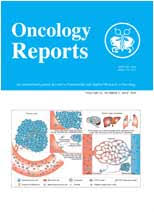The relationship between vagal nerve activity and clinical outcomes in prostate and non-small cell lung cancer patients
Categories
Keywords
Categories
Keywords
- Show all
- ADHD
- Anxiety/Panic
- Burnout
- Cancer
- Cardiovascular disease
- Chronic pain
- Cognitive function
- Cortisol/DHEA
- Costs
- Dementia
- Depressie
- Diabetes
- Global Coherence
- Hypertension
- Intuition & Consiousness
- Kids/Youth
- Leadership
- Meditation/Mindfulness
- Metabolic Syndrome
- Obesity/Eating disorder
- Pregnancy
- PTSD
- Resilience
- Schizophrenia
- Science HRV & Coherence
- Sleep quality & fatigue
- Social Coherence
- Stress
The relationship between vagal nerve activity and clinical outcomes in prostate and non-small cell lung cancer patients

Abstract. Recent studies suggest that vagal nerve activity, indexed by heart rate variability (HRV), could have a prognostic role in cancer. However, most studies did not control adequately for confounders and included cardiac patients. Furthermore, the validity of this prognostic role needs to be tested in different types of cancer. The present study tested the prognostic role of HRV in prostate cancer (PC) and non-small cell lung cancer (NSCLC) patients, using a historical prospective design. HRV was derived from brief 10 sec ECGs obtained at approximately the time of diagnosis in 113 PC patients and 133 NSCLC patients. Outcomes included prostate-specific antigen (PSA) at 6 and 24 months in PC, and overall survival (OS) (for the full sample) and survival time (for the deceased patients) in NSCLC. Furthermore, the possible mediating role of C-reactive protein (CRP) was tested (in NSCLC), as well as whether age and stage moderated the relationship between HRV and prognosis in both types of cancer. In the PC patients, HRV significantly inversely predicted PSA levels at 6 and 24 months, independent of confounders. Furthermore, this was particularly significant in metastatic PC patients, indicating moderation by stage. In NSCLC patients, HRV did not predict OS and survival time, but it did positively predict survival time in patients under the age of 65, independent of confounders. Additionally, CRP was not found to mediate the relationship between HRV and OS or survival time in NSCLC.
The present results partly support previous studies and extend them to two additional common types of cancer, using a more rigorous control over confounders. Together with recent experimental findings, these results propose a modulary role of vagal nerve activity in cancer. Therefore, routine measurement of HRV in estimating prognosis in cancer may be considered.
Download the complete article, click here